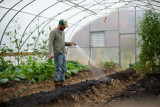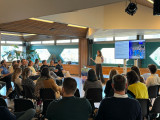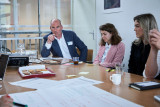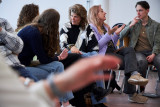Are you an innovation professional working on better cities and regions anywhere in the world? Join our community to:
- Post your own smart city updates and events
- Filter your interests, get personalised content in your feed and receive updates in your mailbox
- Stay up to date through our weekly newsletter with curated content
- Comment on updates to interact with innovation professionals
- Find other innovation professionals and get in touch







